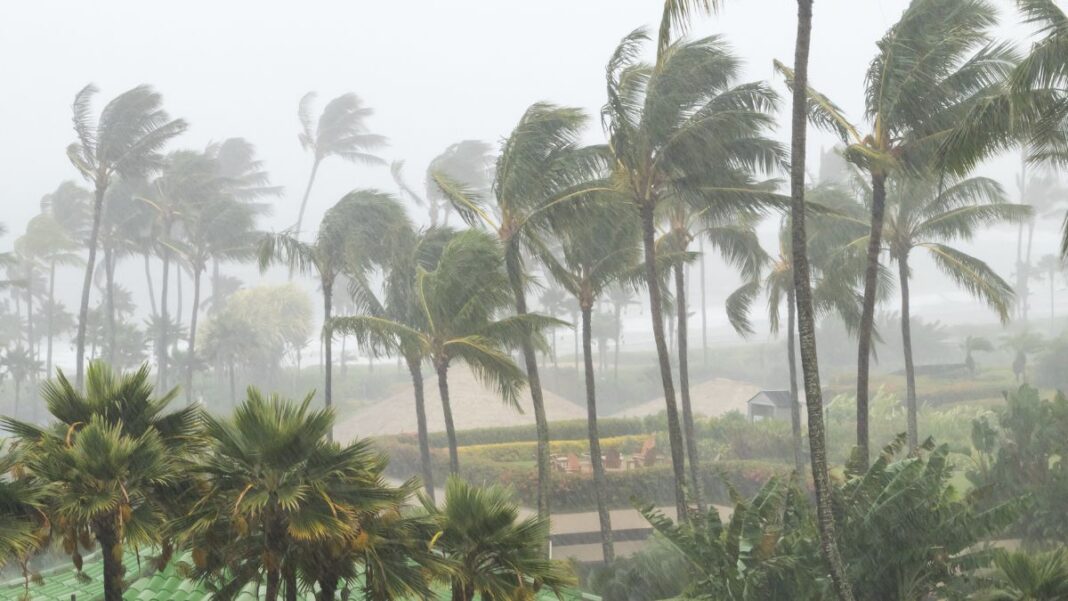Are you planning a trip to the Caribbean soon? If so, it’s important to be aware of the hurricane season, which typically runs from June 1 through November 30.
During this time, the Caribbean region is at risk of experiencing strong winds, heavy rainfall, and other dangerous weather conditions that can put travelers at risk.
However, with the right preparation and safety measures, you can still enjoy a safe and enjoyable trip to the Caribbean during hurricane season.
To help you stay informed and prepared, this article provides detailed information on the Caribbean hurricane season, including safety tips and strategies for minimizing your risk.
Whether you’re traveling to the Caribbean for business or pleasure, it’s important to understand the risks and take steps to protect yourself and your loved ones.
Understanding Hurricane Season
Seasonal Timeline
The Caribbean hurricane season runs from June 1 through November 30, with August and September being the peak months. During this time, it is important to stay informed about weather conditions and potential storms. Keep an eye on local news and weather reports, and consider signing up for alerts from the National Hurricane Center.
Formation of Hurricanes
Hurricanes form over warm ocean waters when a combination of atmospheric and oceanic conditions are just right. Warm air rises, creating an area of low pressure, which draws in more warm, moist air. This air rises and cools, forming clouds and precipitation. As the storm system rotates, it can grow stronger and develop into a hurricane.
Historical Impact
The Caribbean has a long history of devastating hurricanes, with some of the most notable storms occurring in recent years. In 2017, Hurricane Irma caused widespread damage across the region, while Hurricane Maria devastated Puerto Rico. These storms serve as a reminder of the importance of being prepared and staying informed during hurricane season.
To stay safe during hurricane season, it is important to have a plan in place for evacuation or sheltering in place. Make sure you have enough supplies, including food, water, and medications, to last for several days. Keep important documents in a waterproof container, and consider investing in hurricane shutters or other protective measures for your home or business. By staying informed and taking precautions, you can help protect yourself and your loved ones during hurricane season.
Preparation and Safety Tips
Emergency Planning
Preparing for a hurricane or tropical storm in the Caribbean requires careful planning. You should start by creating an emergency plan that outlines what you and your family will do in the event of a hurricane or tropical storm. This plan should include evacuation procedures, a survival kit, and important documents.
Your emergency plan should include identifying a safe place to go if you need to evacuate, such as a shelter or a friend or family member’s home outside of the affected area. You should also plan how you will communicate with family members and loved ones during the storm.
Evacuation Procedures
If you are advised to evacuate, it is important to do so as soon as possible. Follow the instructions of local authorities and evacuate to a safe location outside of the affected area. You should also be aware of the evacuation routes and follow them carefully.
When evacuating, it is important to bring essential items with you, such as a survival kit, important documents, and any necessary medications. You should also turn off all utilities and lock all doors and windows before leaving.
Survival Kit Essentials
Your survival kit should contain essential items that will help you and your family survive during and after a hurricane or tropical storm. This kit should include:
- An emergency food and water supply for at least three days
- An emergency medicine supply
- Emergency power sources such as flashlights (with extra batteries), a radio, and a portable charger
- Safety and personal items, such as a first aid kit, a whistle, and a multi-purpose tool
- Important documents, including medical documents, wills, passports, and personal identification
- A fire extinguisher
- Cash and credit cards
It is important to keep your survival kit in a waterproof container and store it in a safe, easily accessible location. You should also check and replace any expired items regularly.
By following these preparation and safety tips, you can help ensure the safety of yourself and your family during hurricane season in the Caribbean.
Frequently Asked Questions
What are the peak months of hurricane season in the Caribbean?
Hurricane season in the Caribbean typically runs from June 1st to November 30th. However, the peak months are usually from August to October. During these months, the frequency and intensity of hurricanes tend to be higher. It is important to monitor weather reports and stay informed about any potential storms during this time.
How can travelers stay safe during hurricane season in the Caribbean?
If you are traveling to the Caribbean during hurricane season, it is important to take precautions to ensure your safety. Some tips include:
- Stay informed about weather conditions and potential storms by monitoring local news and weather reports.
- Have a plan in place for evacuation in case of an emergency.
- Consider purchasing travel insurance to cover any unforeseen cancellations or disruptions to your trip.
- Pack a hurricane preparedness kit with essentials such as non-perishable food, water, flashlights, and batteries.
Which Caribbean islands are less likely to be affected by hurricanes?
While no Caribbean island is completely immune to hurricanes, some are less likely to be affected than others. The ABC islands (Aruba, Bonaire, and Curacao) are located outside of the hurricane belt and have a lower risk of being impacted. Other islands such as Barbados, Grenada, and Trinidad and Tobago have historically experienced fewer hurricanes.
What should be included in a hurricane preparedness kit for residents and visitors in the Caribbean?
A hurricane preparedness kit should include essential items to help you survive during and after a hurricane. Some items to consider include:
- Non-perishable food and water for at least three days
- Flashlights and extra batteries
- First aid kit
- Personal hygiene items
- Cash and important documents such as passports and insurance policies
- A battery-powered or hand-crank radio
How has hurricane activity in the Caribbean changed over the past five years?
The Caribbean has experienced an increase in hurricane activity. In 2017, Hurricanes Irma and Maria caused widespread damage and devastation across several Caribbean islands. However, it is important to note that hurricane activity can vary from year to year and it is difficult to predict the exact impact of each storm.
What historical data shows about the impact of hurricanes on the Caribbean by month?
Historical data shows that the peak months of hurricane season (August to October) are typically associated with a higher frequency and intensity of hurricanes in the Caribbean. However, hurricanes can occur outside of these months and it is important to stay informed about weather conditions throughout the entire hurricane season.

